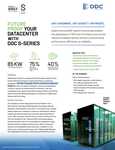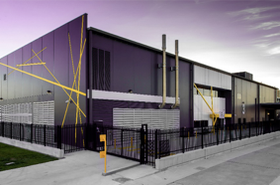Biological computing startup Cortical Labs has launched CL1, what it is calling the world’s first commercial biological computer.
The technology combines “lab-cultivated neurons from human stem cells” with silicon to create what the company says is a “more advanced and sustainable form of AI,” a neural network dubbed Synthetic Biological Intelligence (SBI).
According to Australia-based Cortical Labs, the real neurons are “cultivated in a nutrient-rich solution” that supplies them with everything necessary to be healthy. The neurons then grow across the silicon chip, which sends and receives electrical impulses into the neural structure.
The neurons are then integrated into Cortical Labs’ Biological Intelligence Operating System (biOS), capable of running simulations. The operating system then sends information directly to the neurons about their environment, and as they react, their impulses affect their simulated world.
Code can be deployed directly into the real neurons, which the company says are “self-programing, infinitely flexible, and the result of four billion years of evolution.” The neurons can then be kept alive for up to six months with the CL1’s internal life support system.
The CL1 needs “minimal inputs and a fraction of energy other technologies use, enabling longer research timelines,” Cortical Labs says, adding that the CL1 is also animal testing free, making it an “ethically superior alternative to animal testing while delivering more relevant human data and insights.”
The CL1 computers are expected to be available in the second half of 2025, with founder and CEO Dr. Hon Weng Chong adding that units and racks will be made available to highly specialized labs, providing them with the ability to grow their own cells.
“However, to truly democratize access to this innovation, we’re also offering the Cortical Cloud as a Wetware-as-a-Service (WaaS),” he wrote on LinkedIn. “This will allow customers to remotely access and work with cultivated cells via the cloud to build applications.”
Each unit is expected to cost around $35,000, uses 850-1,000W of energy, and doesn’t require an external computer to operate. In the coming months, the company is hoping to bring a biological neural network server stack online housing 30 individual units, with the aim of having four stacks available for commercial use via the cloud by the end of 2025.
The CL1 is an upgraded version of a biological computer previously demonstrated by Cortical Labs, then known as DishBrain. That version contained 800,000 human and mouse neurons on a CMOS chip and taught itself to play Pong.
The company has secured $11 million in funding to date. Investors include Horizons Ventures, Blackbird Ventures, LifeX Ventures, Radar Ventures, and the CIA's In-Q-Tel.








